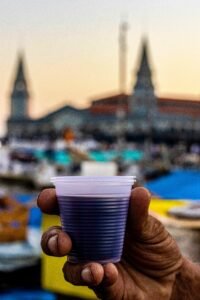
Packaging Psychology in Private Label
Packaging Psychology in Private Label: How to Influence Consumer Behavior in Private Label
In today’s competitive market, packaging plays a crucial role in influencing consumer behavior, especially for private label brands. Packaging is not only a protective barrier but a marketing tool that communicates a brand’s identity, evokes emotions, and ultimately drives purchasing decisions.
1. First Impressions Matter: The Silent Salesperson
Packaging is the first point of contact between the consumer and the product, often determining whether a purchase is made. According to Nielsen, 64% of consumers have tried a new product because the packaging caught their attention (Nielsen Global Sustainability Report, 2019). For private label brands, packaging can be the key differentiator from established national brands.
Effective packaging doesn’t just grab attention—it also builds trust. For private label products, where brand recognition might be limited, packaging plays a crucial role in establishing credibility.
2. Color Psychology: Evoking Emotions and Associations
Color is one of the most powerful tools in packaging design. Different colors can evoke specific emotions and consumer behaviors:
- Red: Stimulates appetite and excitement, often used for food packaging.
- Blue: Communicates trust and calm, ideal for health or wellness products.
- Green: Represents sustainability and health, frequently used for eco-friendly brands.
- Black: Conveys luxury and exclusivity, perfect for premium products.
Understanding how color affects consumer perceptions is vital for creating packaging that resonates with target audiences.
3. Shape and Size: Subconscious Perceptions
The shape and size of packaging communicate important subconscious messages. For example:
- Round shapes feel more approachable and friendly.
- Square or rectangular packaging conveys reliability and stability.
- Unique or irregular shapes stand out as innovative and trendy.
The size of the packaging can also influence consumer perceptions of value. Larger packages can suggest more quantity or better value, while smaller ones often signal exclusivity or higher quality.
4. Typography: Words That Speak Volumes
Typography is a powerful element of packaging design. The choice of font can communicate a brand’s personality and influence consumer perceptions:
- Bold, clean fonts suggest modernity and clarity, while elegant fonts convey luxury.
- Legibility is crucial; hard-to-read text can frustrate consumers.
- Font size can highlight key information, such as product features or brand name.
For private label brands, effective typography helps ensure clarity and enhances product appeal.
5. Imagery: Creating an Emotional Connection
Humans are visual creatures, and packaging imagery can deeply influence purchasing decisions. High-quality product images allow consumers to visualize what they’re buying, while lifestyle images create emotional connections by showing the product in use.
Including certifications such as “organic” or “eco-friendly” can also build trust, particularly with eco-conscious consumers. For private label brands, the right imagery strengthens the emotional connection and enhances brand identity.
6. Sustainability: Eco-friendly Packaging Choices
With growing awareness of environmental issues, consumers increasingly prefer sustainable packaging. According to Nielsen, 66% of global consumers are willing to pay more for sustainable products (Nielsen Global Sustainability Report, 2019).
For private label brands, using recyclable or biodegradable materials can help differentiate products and attract ethically-conscious consumers. Minimalist, waste-reducing packaging can further align with environmental values.
7. Emotional Connection: Packaging That Resonates
Packaging that creates an emotional bond with consumers encourages brand loyalty. Private label brands that appeal to consumer emotions—whether through playful designs or elegant, premium packaging—are more likely to foster long-term relationships.
When packaging resonates with the consumer’s values, needs, or desires, it encourages repeat purchases and strengthens brand loyalty.
Read more about Private Label Brazil and its exclusive partnership with Anuga Brazil in 2025.
Conclusion
Packaging is a crucial element in the success of private label brands. From color psychology and design to sustainability and emotional connection, the right packaging can significantly influence consumer behavior and set your brand apart in a crowded marketplace.
Participating in trade fairs like the Private Pack Experience, part of the Private Label Brazil fair, is an excellent opportunity for private label brands and outsourcing companies to expand their market presence. The Private Pack Experience serves as a dedicated space within the event where companies in the sector can offer their services to brands that work with private labels and their clients. Held annually in São Paulo, Brazil, Private Label Brazil is the largest and most significant gathering for private label and outsourcing in Latin America. The partnership with Anuga Select Brazilis also expected to further enhance the event’s global reach, providing even more opportunities for networking, showcasing products, and gaining valuable insights. This makes it a must-attend event for those looking to grow in the dynamic private label sector.






